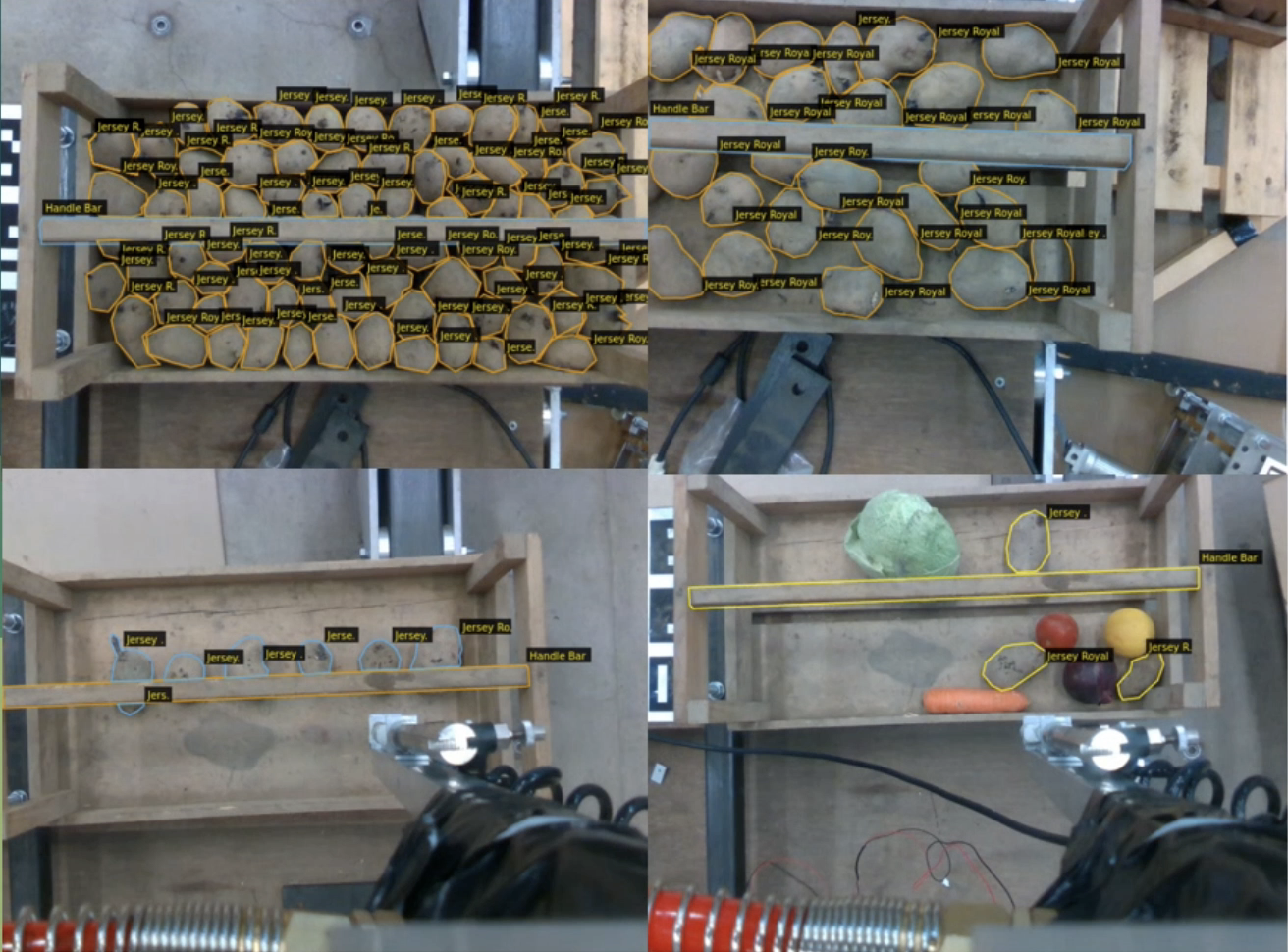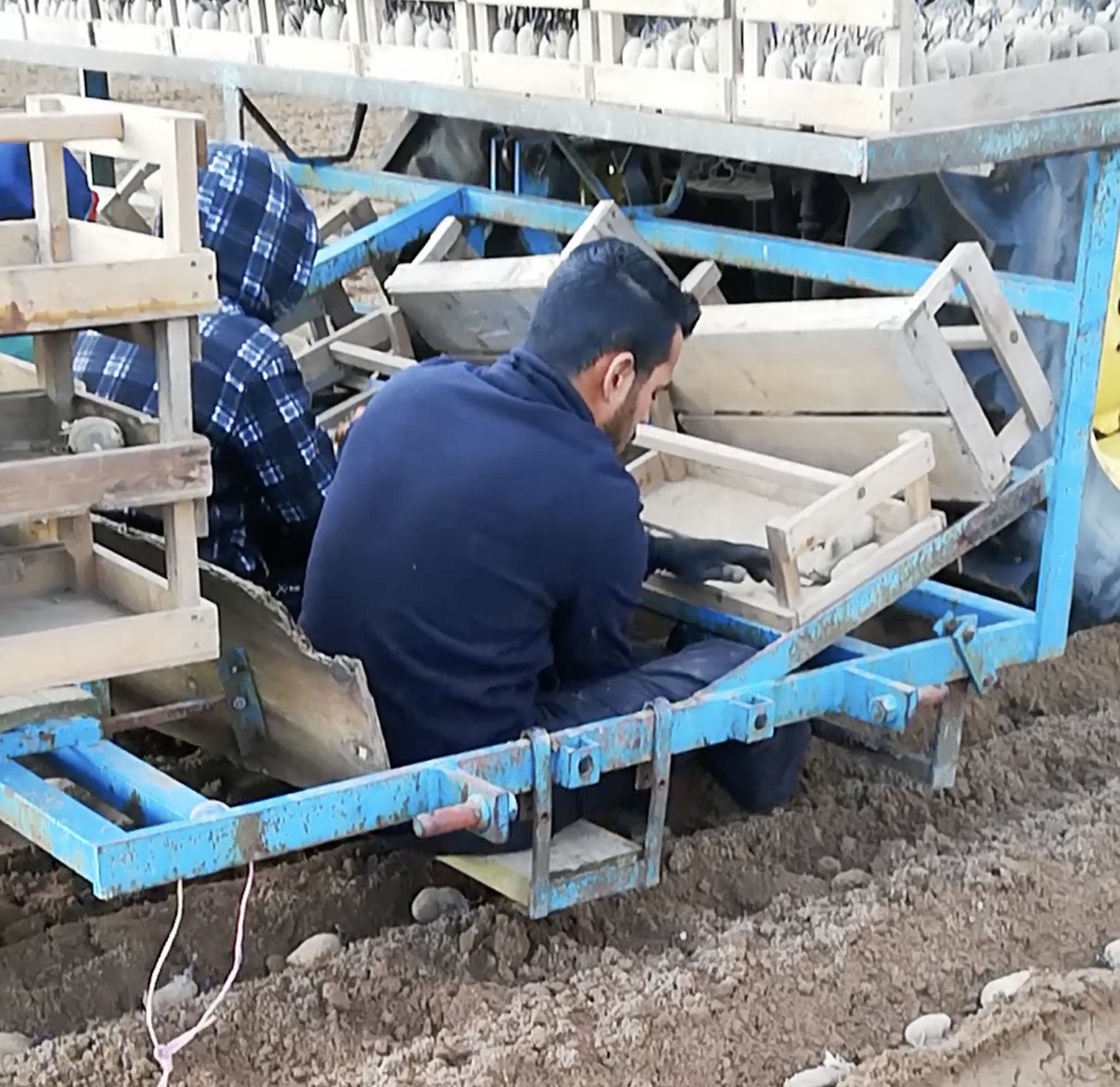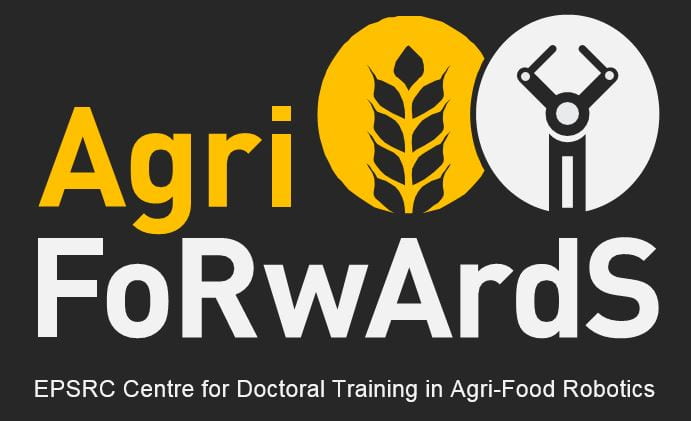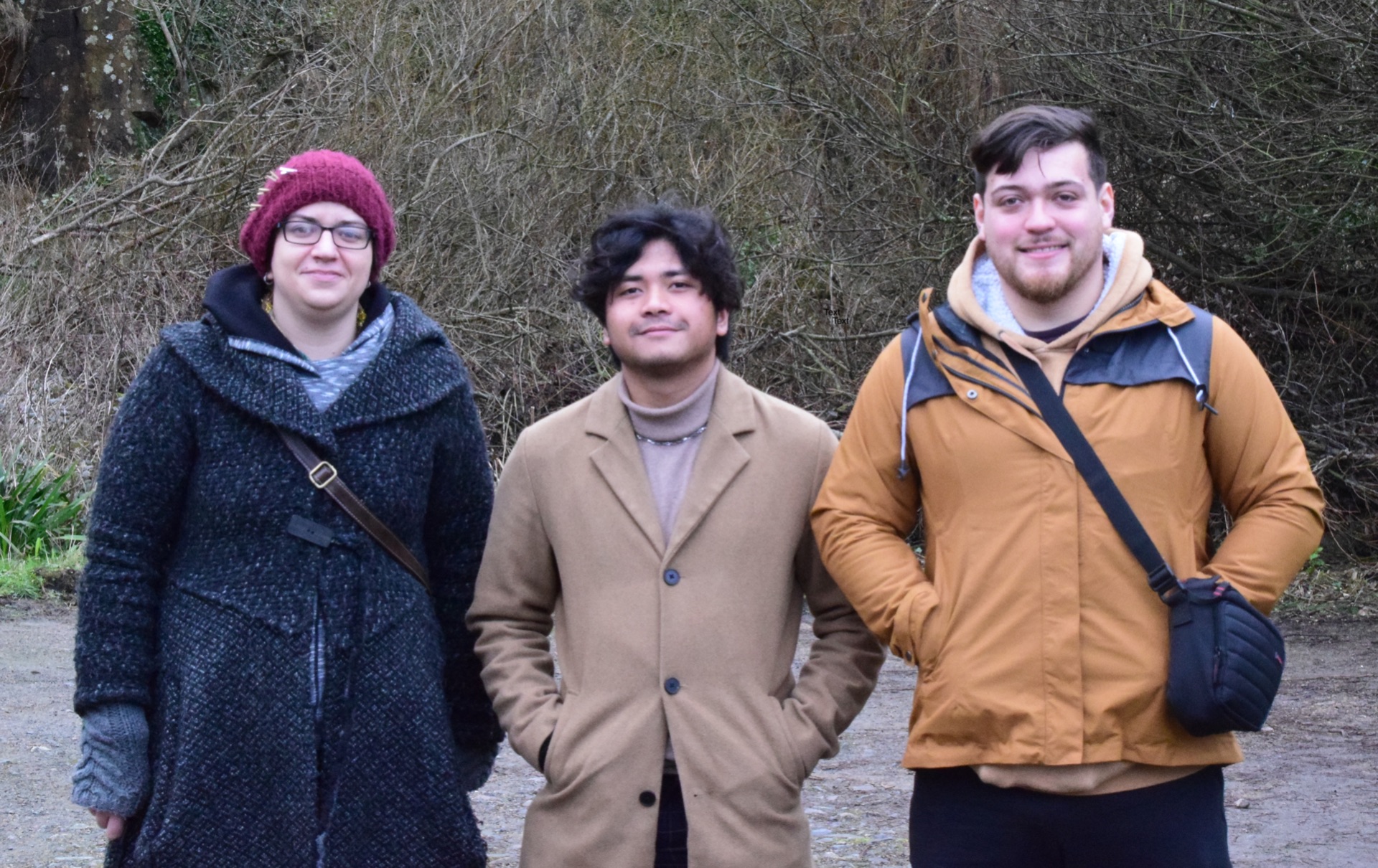AgriFoRwArdS CDT cohort 2 students, Bradley Hurst and Elijah Almanzor, from the University of Lincoln and the University of Cambridge respectively, visited the beautiful island of Jersey for the second time as part of their ongoing PhD research with industry partners, Jersey Farmers Union. Accompanying the visit was University of Lincoln, Senior lecturer in Agri-Robotics, Dr Petra Bosilj.
Both Bradley and Elijah are working with the Jersey Farmers Union to develop a fully autonomous potato planting solution. Their respective PhD research projects are focused on Active Robot Perception for Automated Potato Planting supervised by Dr Petra Bosilj. and Automation and Robotization of the Planting of the ‘Jersey Royal’ Potatoes supervised by Dr Fumiya Iida. Both of these projects are extremely timely and aim to fill the gap left by the rising costs of manual labour required for hand planting.
Project Kick Off
On their initial visit the students and members of the Jersey Farmers Union came together to kick off the project and a partial demonstration of the planting process was put on by the Jersey Farmers Union. This enabled the students to gain a base understanding of the problems they would need to address in their research. From there, the students have been working on modelling conditions and experimenting with different approaches to those that were demonstrated in the initial visit.

This resulted in the students prototyping an effective method of picking and placing the potato tuber in lab conditions, alongside experimenting with object detection methods in real world conditions. Both approaches currently use pre-existing solutions to see how they perform when applied to the problems.
Returning to Jersey
The focus of this second visit was to bring the students back to Jersey to observe the full planting operation, which was not possible last time. The opportunity to see the actual planting operation after having time to carry out preliminary experimentation allowed the both students to validate the assumptions they had last made, and observe how they can further develop the research. This visit also offered the students an opportunity to collect data under real world conditions for the planting process. This will significantly aid in the perception system under development.
The second took place over three days arriving in Jersey on Wednesday the 2nd February and departing on Friday the 4th. On the first day of arrival the students were given a tour of a number of sites around the island. The observations focused on hand planting that was taking place. This gave an opportunity to see the scale, pace, and order of operations that came together to form the tuber planting procedure. Data was also captured on these visits with a focus on images for the production of a training data set such as what the robot is expected to see during the planting process, the tuber being planted in the rows, as well as empty rows and empty crates.
The weather on the second day saw the students only observing planting in the late afternoon using trailer based hand planters. This comprised of workers seated in rows with boxes of stored tuber in front of them which the workers then take a tuber from and then place into the rows they are being towed over.

Later in the day, the students visited the potato tuber packing and storage facilities. This provided an opportunity to capture more data and understand the full process in more detail. The visits also facilitated discussions around further areas for potential automation with one such example being in the harvesting process, where an opportunity to extend the research being carried out over the planting process could be transferred over to some areas of harvesting.
The final day centred around closing out the visit and what the next steps would be for both the students and the Jersey Farmers Union. Some more sites that had already been planted were visited to observe the different kinds of terrain as examples of what would be and wouldn’t be expected to be planted using an autonomous solution. The students outlined the directions in which they plan to take their work. This consisted of a focus on developing a robotic manipulator more suited to the constraints laid out over the last two visits and making use of the data collected to further develop the perception system and build upon what has already been developed around object tracking and visual servo control.
Next steps
Overall, the trip proved to be beneficial for both students and the Jersey Farmers Union. The students have been able to check their understanding of the problem and refine their research whilst also collecting essential data to further progress the project. The Jersey Farmers Union was able to see the progress the students have made and check their understanding of the problems faced from their point of view. Now the students will carry out the next stage of research as they work towards delivering a working prototype.
Thank you Bradley!
A big thank you to Bradley Hurst for sharing thoughts and experiences from their recent research visit. For more information on the research being done within AgriFoRwArdS, please visit the website.

